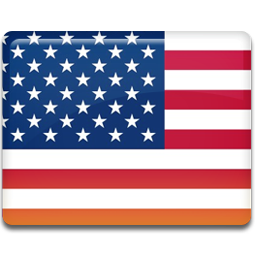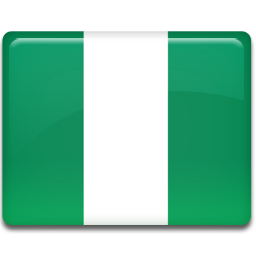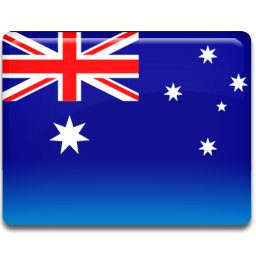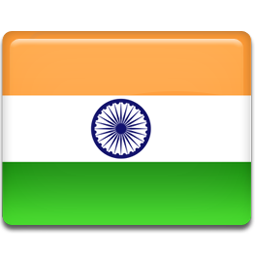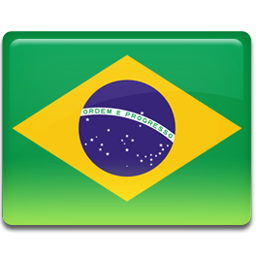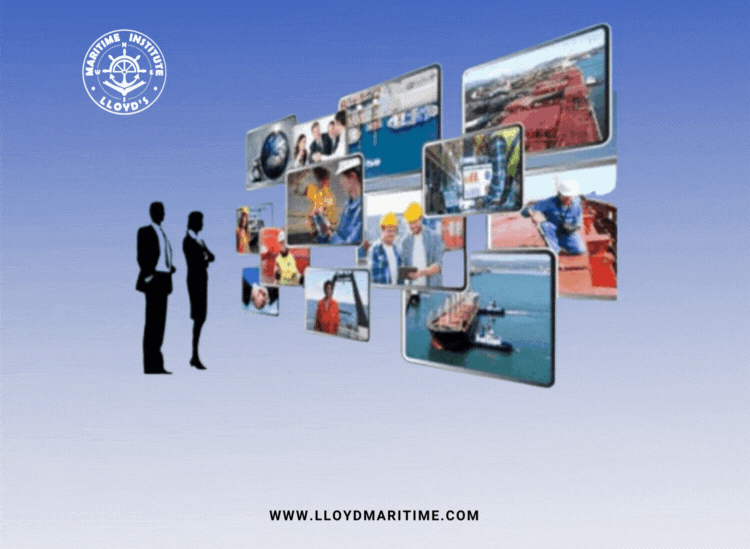Supercargo Operations Advanced Diploma
Liquid Bulk Cargo Surveys for Marine Super Cargo
- Course Program
- Who Should Attend
- Compliance with regulations
- Duration and Teaching Methods
- Course Benefits
- RPL
- Course Content
- Certification
Introduction
Petroleum Products Surveying involves inspecting for quantity and quality. Such inspections can be performed at different stages in the product cycle including at the production site, on producing platforms, at storage locations, during draining of crude oil, at loading or unloading installations, on vessels, or in road tank trucks.This course will guide to survey the operations, report on the visual condition of the cargo, perform shore and ship tank measurements, and draw samples to check quality by laboratory analysis.
Also learning some specific services such as Gas Free & Bunker Surveys, Terminal Audits, and Loss Control consultancy to help traders calculate and prove the demurrages of vessels.
Objectives
This course has been designed to provide marine cargo specialists and operations
staff with solid marine knowledge required to understand the role of the marine
cargo surveyor and the details of the surveys, inspections, claims, and
investigations for cargoes and damage to cargoes so they can perform as effective
marine cargo surveyors.
Anyone who services the global cargo inspection
market and feels they would benefit from a more structured knowledge of the elements
of commodities trade and inspections will find the course extremely beneficial.
Minimum Entry Requirements
There are no prerequisites for this Course, however, in order to fully benefit from the training, it is recommended that the participants are either new entrants to the shipping industry or professional staff in shipping companies, ship brokers, port agencies, insurance inspectors, banks and similar service organisations can gain a valuable understanding of their customers' roles and responsibilities.The comprehensive documentation that accompanies the course has been designed as a useful guide for future reference.
Who Should Attend
- Practicing cargo agents
- Freight forwarders
- Cargo Claim officers
- Shipping officers
- Shipping Industry starters
- Cargo consolidators
- Other professionals
Course Benefits
Whichever way you choose to take the course, you will receive:Certified Digital badge
Digital badges are web-enabled versions of a credential, certification or learning outcome that can provide valid verification of your credential. They protect the integrity of your credential by providing a link to the verified data from LMI that cannot be falsified. Earners can share their credentials in their email signature, resumes and across various social media platforms, with their contacts, and the greater community enhancing their profile visibility and recognition.Tutors Gateway
Our tutors are renowned trainers and managers with strong academic and industry backgrounds, with sector-specific skills and practical experience. They are therefore able to bring a wealth of up to date experience and competency.Hight Quality Learning Materials
All participants in this course will be provided with a wealth of documentation, including slide presentations, case studies and exercises. The course material is current and accurate and is regarded as the most comprehensive study material of its kind at this level.Career and Employability service (3 Months)
Participation in this course will entitle you to have your CV inserted in the LMI database and distributed to companies, organizations and head hunters of the LMI’s international network. With our certificates, the student has the chance to apply with leading companies in the shipping industry and gain access to work-experience placement opportunities. After you finish your course, you can get help, advice, and support for up to 3 months from our Careers and Employability service as you advance in your career.Registration in the LMI Alumni Portal
Participation in the Advanced Diploma’s course entitles you to be enrolled in the LMI Alumni Association, the international network through which students of the LMI can share ideas, experiences, and projects.IAMCS Affiliate Professional Membership
As a direct benefit of our accreditation from the International Association of Marine Consultants and Surveyors, students will receive exemptions from the academic requirements for Affiliate membership level of IAMCSCourse Content
This advanced diploma comprises one core units and four specialisation ones :
| UNIT OF COMPETENCY CODE |
COURSE TITLE |
NOMINAL HOURS | TEXTBOOK | TRAINING TOPICS |
|---|---|---|---|---|
| SC001 | SuperCargo Operations | 52 | VIEW DETAILS | VIEW DETAILS |
| UNIT OF COMPETENCY CODE |
COURSE TITLE |
NOMINAL HOURS | TEXTBOOK | TRAINING TOPICS |
|---|---|---|---|---|
| CS017F | CRUDE OIL & PETROLEUM PRODUCTS INSPECTION | 52 | VIEW DETAILS | VIEW DETAILS |
| CS018F | CHEMICAL CARGO INSPECTION | 52 | VIEW DETAILS | VIEW DETAILS |
| CS019F | LNG & LPG CARGO INSPECTION | 52 | VIEW DETAILS | VIEW DETAILS |
| CS020F | LIQUID NATURAL OILS, FATS & FATTY PRODUCTS INSPECTION | 52 | VIEW DETAILS | VIEW DETAILS |
Duration
Each module is expected to involve 6 hours of learning time each week, making a total of 52 hours per 2 months period and the associated tests might be completed in less than 2 hours.The training sections don’t have to be completed in one session, you may return to it as often as you like, the system will bookmark your last page so you are returned directly to where you exited the program.
Timeframe
This course will remain open for 2 months for completion or revision starting from the date of course uploading on the student portal.One or more extensions of study totaling not more than 2 months may be requested by a student and authorised by the Course Director. The request should be made at least one day prior to the end of the period of study.
Further extensions are used where exceptional circumstances necessitate an extension of the normal period of study in order to complete the final test. An agreed extension may involve the payment of small additional fees.
Teaching Methods
In line with the LMI’s general approach and the best international standards, the course is designed with the aim of providing excellent training with an emphasis on its concrete application in the job, professional and company principal related activities.The training include a course framework (detailing the scope, objective, entry standards, and other information about the course), a course outline (timetable), a detailed teaching syllabus (including the learning objectives that should have been achieved when the course has been completed by students), guidance notes and summary of how the students will be evaluated.
The course involves mainly independent study with the assistance of the educational team; study time, in general, is to be spent on activities such as studying the lecture course material and textbooks and preparing your coursework in order to be ready to take the final test.
Your progress in the subjects taught will be tested and consolidated through exercises related to actual cargo surveying cases.
Modes of attendance
This course can be attended only:Online, via a cutting-edge web platform.
Compliance with regulations
Lloyd’s Maritime Institute is an accredited training institution by the International Association of Marine Consultants and Surveyors. The LMI methodology and tools are based upon long-term experience in development of training programs and best practices while ensuring compliance with maritime codes, conventions and regulations in the shipping industry.This course is intended to facilitate access to the knowledge and skills demanded by increasingly sophisticated maritime technology, it is also designed to meet the requirements of:
Assessment
This Certificate units are assessed by:- Coursework, dissertations
- Analysis of topical case studies
- Written reports
- Online examination.
In addition to supervising the student’s homework assignments completion and training progress closely against the giving deadlines, we provide the following services:
- Helping students in course selection and program planning.
- Consulting and advising students on long-term career goals.
- Consulting and supervising online coursework related to subjects we provide training in.
- Helping students with questions through email or over the phone at a convenient time.
- We often provide students with extra eBooks, free study resources, and extra practice sheets.
- Students are encouraged to contact the education support team, who strive to address learning needs creatively and with care while you are completing the course.
- Enhanced workers prospect for career advancement in the shipping industry through a structured progression program and pathway.
- Provide the trained workforce with skills and industry recognised formal qualifications
Certification
On successful completion of the course, you will be rewarded with a Certificate of Competance in Cargo Surveying. Those participants who could not complete the training will be rewarded depending on their current achievements with either Certificate of Competence on the completed subjects or Certificates of Participation on all studied subjects.RPL & Skills Recognition
Sometimes an experience is more valuable than a qualification. Thanks to Recognition of Prior Learning or, RPL, now your previous skills, experience and working knowledge can lessen the time it takes you to complete a course and get you working towards your career goals faster. It can be difficult to find the time and effort to fit an entire course into our lives, especially for those already working and juggling other commitments. Despite the convenience of online courses, there can still be an issue with time. This is where Recognition of Prior Learning (RPL) comes into play, where your previous skills, experience or qualifications can shorten the time it takes to undergo a course and allow you to become eligible for qualifications you may not otherwise be able to do. For instance, you can use RPL to claim some but not all credits on a level of the course (for example, to avoid completing a module that covers the knowledge you already have).Sources of RPL
RPL can come from previous study, employment, voluntary work and training courses, including courses and qualifications you didn't complete. RPL is also known as prior learning assessment (PLA) and prior learning assessment and recognition (PLAR).Types of RPL
There are 3 types of RPL you can put towards a qualification:1. Credit transfer
2. Prior certificated learning
3. Prior experiential learning
You can put more than one of these types of RPL towards a qualification.
1. Credit transfer
Credit transfer is when you put credits from a previous higher education qualification towards a new qualification. We can accept credits from qualifications you've completed in the last 10 years.Higher education qualifications include Professional Certificates, Professional Diplomas, Foundation and Bachelor's degrees, HNC and HNDs, and Master's degrees issued after the successful achievement of either web-based distance learning programs or traditional classroom education.
If you started but didn't complete a higher education course or you have a higher education qualification or credits from an educational institution, you may be able to use prior certified learning (see below) instead of credit transfer.
2. Prior certificated learning
Prior certificated learning is a higher level learning that didn't result in a higher education qualification or credits.This can include professional development and employment-based awards, qualifications awarded by professional bodies, non-university higher education, unaccredited institutions of higher education, and university courses you didn't complete.
3. Prior experiential learning
Prior experiential learning relates to knowledge and skills you've gained through previous marine industry experience. For example, through employment or voluntary work.Applying for RPL
The way you apply for RPL depends on the type of RPL you want to put towards your qualification.Before you apply for RPL, you need to have applied for your course or be registered on it. Details of how to apply will be confirmed by the course's RPL advisor.
Applying for credit transfer RPL
To transfer credits from a previous higher education level qualification towards a new qualification, complete this form RPL Application Form and send it to admissions@lloydmaritime.com.Applying for prior certificated learning and prior experiential learning RPL
To convert prior certificated learning and prior experiential learning into credits you can put towards a qualification, you'll need to put together a portfolio of evidence with your application.To do this, complete this form RPL Application Form and send it with your portfolio of evidence to admissions@lloydmaritime.com. We'll put you in touch with your course's RPL advisor. Defence forces training and experience:
Some defence forces training and experience have standard RPL credit ratings and won't need a portfolio of evidence.
Getting a decision
You'll get a decision on your application for RPL within 3 working days of submitting your form.If you don't agree with the decision, you can appeal it by emailing admissions@lloydmaritime.com.
How much does RPL cost?
Applying for RPL is free for all of our courses.Copyright © LLOYD'S MARITIME INSTITUTE LLC. All rights reserved.

